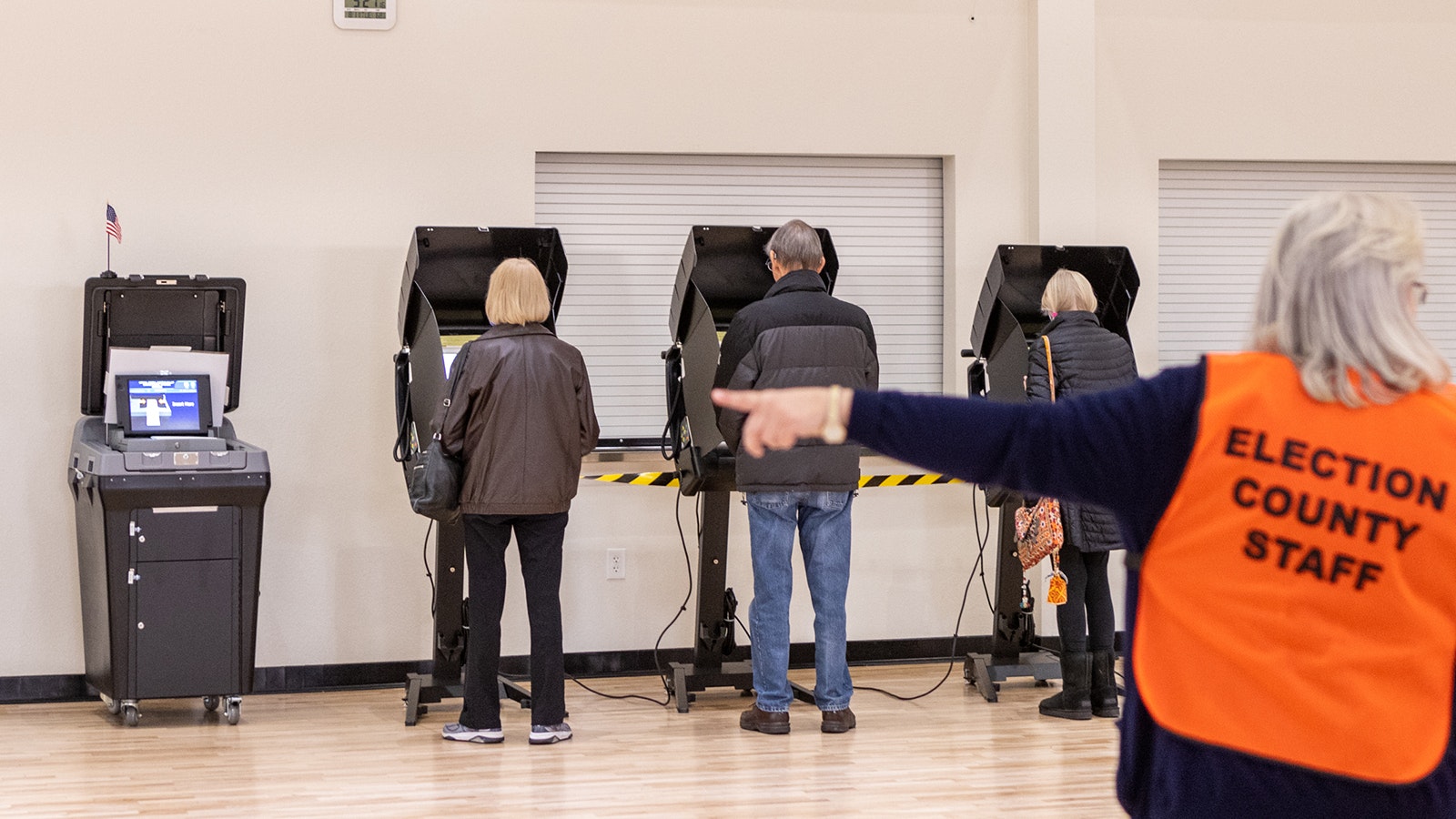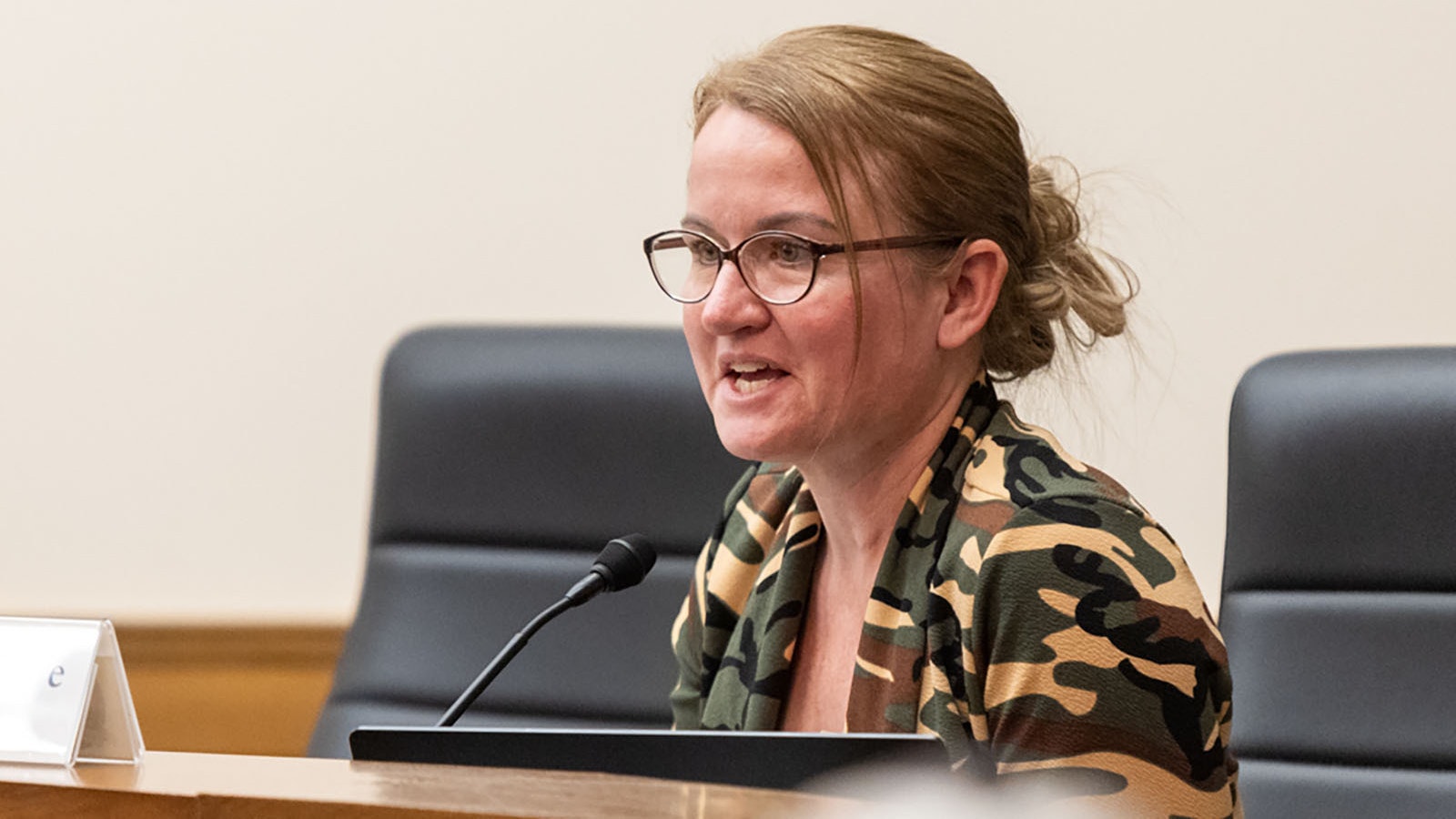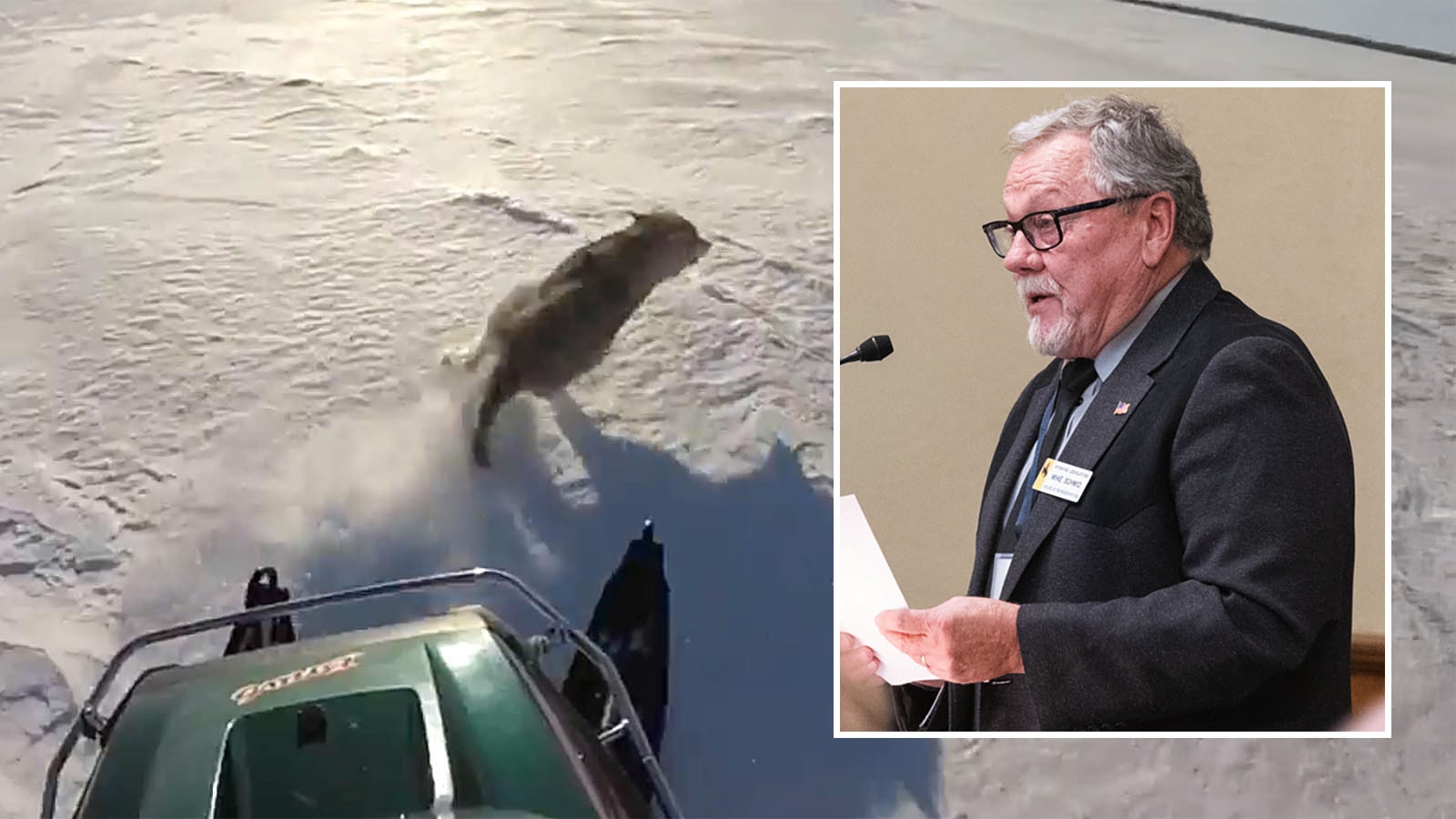Wyoming lawmakers want to expand the state’s voter intimidation laws to better cover less serious forms.
The Joint Corporations, Elections and Political Subdivisions Committee unanimously passed proposed legislation Thursday that would add a lower-level charge for election intimidation. Current law only classifies voter intimidation as a felony.
The proposed bill would create a misdemeanor offense for election intimidation against an election official or an elector.
Voter intimidation is now only a felony charge in Wyoming, which some have argued discourages county attorneys from prosecuting the violation.
Reports of election-related intimidation and harassment have grown significantly on a national scale in recent years and was particularly evident at some polling places during the 2020 election. This has resulted in an overflow in cases for some prosecutors, said Andy Craig, director of election policy at the Joseph Rainey Center, a group that deals with election administration across the country. There have been very few actual prosecutions from these events, he told the committee.
It Can Happen Here
Buffalo resident Dana Burns said she was intimidated at the polls a few years ago when she was asked why she was wearing a facemask by a poll worker.
The Johnson County clerk and attorney both concluded Burns had not been intimidated. Burns said she wasn’t interviewed by either official and was ignored when she tried to talk to them and her local state legislators about it.
Craig testified that having a separate charge for misdemeanor and felony acts of voter intimidation will be valuable in giving prosecutors more flexibility to charge. Voter intimidation can be very subjective, he said, sometimes limited to people making rude or inappropriate verbal comments. He added that a lot of these cases are examples of what would be an appropriate use of a lower-level charge.
“The cumulative effect is real,” Craig said. “It gets to the core purpose of government and how important it is for our election administration, no one should have to deal with the fear of these sorts of threats.”
State Sen. Cale Case, R-Lander, who has been the most vocal proponent of the bill, agreed and expressed skepticism that many cases of felony voter intimidation would be pursued in Wyoming if the bill were to pass into law.
Felony Changes
The bill also narrows what’s considered felony voter intimidation to only include performed or attempted acts of intimidation. Previously, threats of intimidation were also included under the felony umbrella.
Aggravated election intimidation could include inducing or attempting to induce fear in an election official or elector by use of force, violence, harm or loss. Soliciting the contribution of money, other items of value or election assistance to the campaign of any candidate, candidate’s committee, political action committee or sponsors of a ballot proposition by use of threats of physical violence are also acts that would qualify for prosecution of this felony.
If found guilty of aggravated election intimidation, a person could receive up to five years in prison and up to $10,000 in fines.
The misdemeanor charge for election intimidation contains almost identical language but would be limited to events where only verbal threats were made. This charge would carry a sentence of up to six months in jail and $1,000 in fines.
Specific Scenarios
Sen. Charles Scott, R-Casper, unsuccessfully proposed an amendment to remove “harm or loss” from the felony portion of the bill, arguing that the charge should be narrowly tailored to focus on acts of violence. Scott said even if the acts are significant, all economic related actions of voter intimidation should be a misdemeanor.
Case questioned this point, saying people who intimidate others with the loss of employment or real estate for voting a certain way should probably face a fine larger than $1,000.
“It doesn’t seem comparable,” Case said.
The amendment was rejected by the committee.
Scott also expressed concern that the “any form of economic retaliation” mentioned in the bill could open a door for any misdemeanor charge, saying that this could extend all the way to threats of not doing business with a certain organization in the future.
“Do we really want to make that criminal or is that going one step too far?” he questioned.
Case agreed and said some economic retaliation is covered under free speech. He said he’s lost some business because of his political decisions in the past and doesn’t want those types of acts included in the crime.
Sen. Brian Boner, R-Douglas, disagreed and said the bill is purely limited to intimidation made while in the act of voting and brought up the example of one of his senate colleagues that had their local school district stop doing business with the lawmaker because of the way they had voted.
Leo Wolfson can be reached at leo@cowboystatedaily.com.





